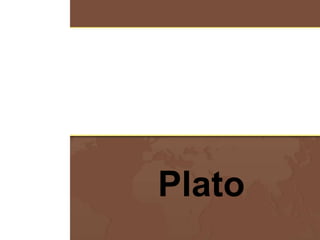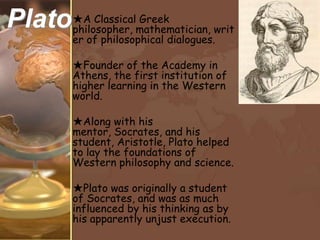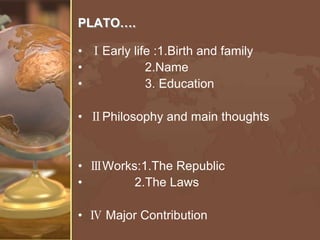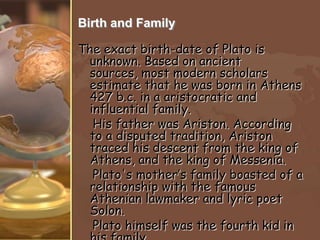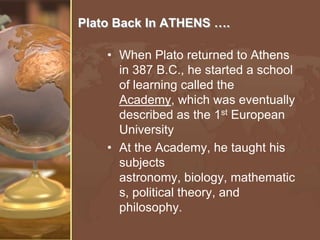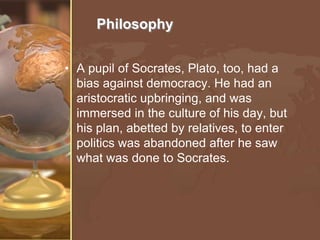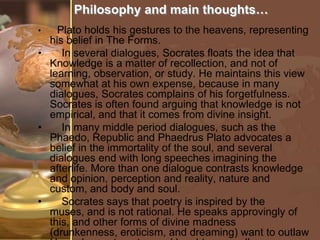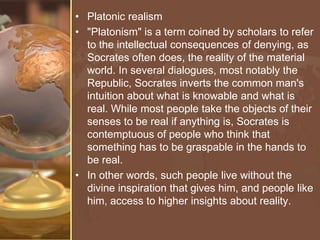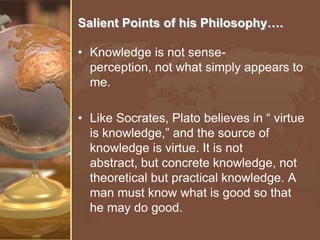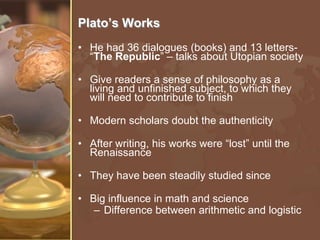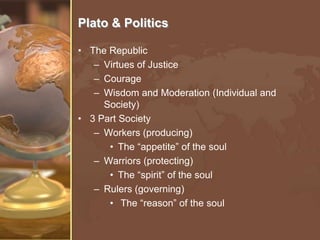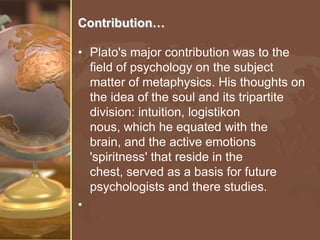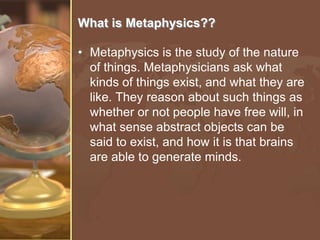Plato was a classical Greek philosopher, mathematician, and writer who founded the Academy in Athens, one of the earliest institutions of higher learning. He was originally a student of Socrates and helped lay the foundations of Western philosophy alongside Socrates and his own student, Aristotle. Plato authored philosophical dialogues that explored topics like politics, ethics, epistemology, and metaphysics. Some of his most influential works included The Republic, in which he outlined his vision of a just society, and other dialogues where he advocated concepts like the theory of forms and the immortality of the soul. Plato made major contributions to psychology through his thoughts on the tripartite nature of the soul and the distinction between knowledge and
